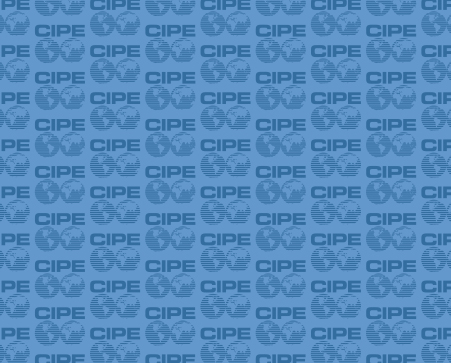
My colleague and I recently attended the 11th Internet Governance Forum (IGF), a United Nations-sponsored global multi-stakeholder forum on internet governance hosted this year in Guadalajara by the Government of Mexico. The four-day event attracted over a thousand government, media, civil society, and private sector attendees from around the world to discuss current trends and the future of global internet governance.
With more than 100 sessions, there were many issues raised, including the role of information and communication technologies (ICTs) in sustainable development, freedom of expression, cybersecurity, and privacy issues. Here are a few takeaways that stood out to me:
- In several sessions on human rights and the ICT sector, many civil society actors voiced concerns for violations of data privacy. Article 19 brought up examples of how telecoms in Mexico are illegally selling geolocation data in the black market, which are often used to harass or intimidate journalists or human rights defenders online or in-person.
- Around the world, social media is becoming clouded with orchestrated disinformation campaigns. Amnesty International highlighted how in Mexico, small PR firms are selling services to create a trolling ecosystem, using blogs, news outlets, Twitter, etc. But this is happening throughout the world to quiet dissent.
- The Asia Pacific region will bring the next billion internet users, mostly from economically disadvantaged backgrounds. Governments, private sector, multilaterals, and civil society must carefully think about how to provide access and connectivity for this diverse, multilingual, mobile users.
- Multi-stakeholder engagement is key for internet governance. The recent IANA Transition process (the Internet Assigned Numbers Authority (IANA) transitioned from the purview of the US National Telecommunications and Information Administration to a new oversight body led a global, multi-stakeholder community) proved that it is imperative for all stakeholders to be involved. Having everyone in the same room helped all actors to achieve a common goal by forcing each party to compromise. Moreover, the multi-stakeholder process helps reinforce accountability. For that reason, the Center for International Media Assistance, brought representatives from the Global South to participate in IGF.
- The digital economy and the future of work is promising, but how should governments, academia, and the private sector adjust to prepare and accommodate this shift? There were more questions than answers around the discussion on the digital economy. Another challenge raised was that startups do not traditionally engage on internet governance issues. Many attendees emphasized the importance of the internet governance community taking the leadership to teach starts up the importance of participating in internet policy discussion.
Overall, IGF was an intense four days full of great presenters, one of whom was the father of the internet, Vint Cerf, who discussed how the tech companies can align incentives with others to fulfill the SDGs – an important issue to keep an eye out for. As the global economy moves more into the digital space, companies must have a voice in the internet governance process to promote an inclusive and democratized private sector. For this reason, CIPE will continue following internet governance trends around the world and how they influence our work.
Maiko Nakagaki is Program Officer for Global programs at CIPE.
Published Date: December 19, 2016
